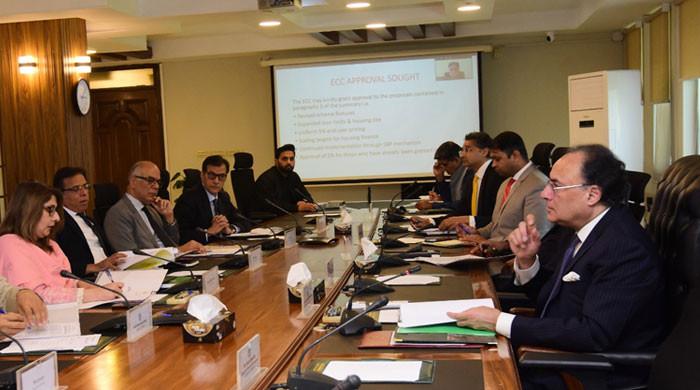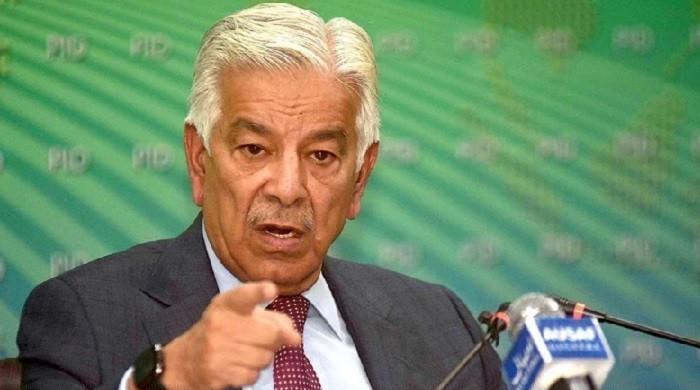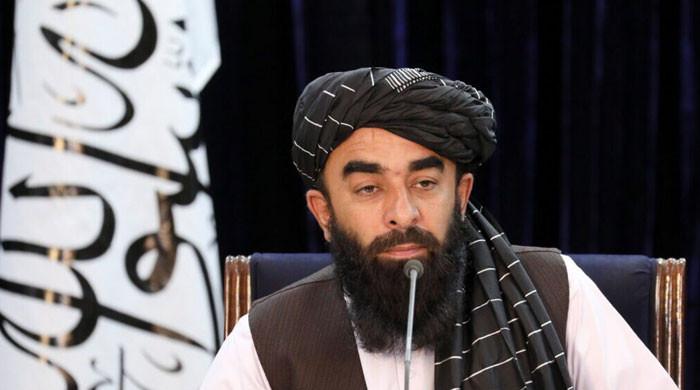PIDE's manifesto proposes limits to dynastic politics, PM term in office
Term limits must be reinstated for the prime minister, perhaps a maximum of two terms, says PIDE manifesto
January 23, 2024

- PM term should be limited to two years, says manifesto.
- Ticket distribution mechanism should consider gender, minorities.
- Generalist colonial examination for CSS should be eliminated.
ISLAMABAD: The Pakistan Institute of Development Economics (PIDE) has launched a manifesto which addressed the country's political and economic landscape, suggesting a limit to the constitutional term of parliament and curbing dynastic politics, The News reported Tuesday.
The think tank unveiled the “PIDE Reform Manifesto: Transforming Economy & Society” on Monday with Caretaker Information Minister Murtaza Solangi as the chief guest at the report launching ceremony.
The PIDE manifesto suggested that there is a need to reduce the constitutional term of parliament at the provincial and federal levels to four years.
Parliament elections
Every year should be an election year and perhaps there is a need to move towards a staggered election mechanism where elections happen every year for some level of government on the pattern of the USA where Congress elections are held after two years and the Presidential election after four years.
The term and family limits for parliamentarians must be introduced. Term limits must be reinstated for the prime minister, perhaps a maximum of two terms. New perspectives often accompany new individuals, bringing innovative ideas to the table. Interestingly, the PIDE also recommended abolishing the Planning Commission and establishing the Growth Commission.
The PIDE says, “Pakistan has been in the emergency ward of the international economy — the International Monetary Fund (IMF) — for much of its history. Undoubtedly, there are deep issues in our economy, policymaking, as well as our governance, and business systems that force us to remain addicted to the lender of the last resort — the IMF”.
The focus of parliamentarians must be on policy and decision-making through legislation. Legislators must be legislators only. They can have no say in development projects or executive decisions. No more than ten legislatures can have any executive position — to keep a clear divide between legislature and executive. Parliament must not be taken as a path to minister-ship.
The direction and use of development funds are to be expended through an act of Parliament, not through a single member of Parliament. Members of Parliament must attend all parliamentary sittings. The attendance, voting records, and legislative and debate participation of all members must be periodically made public. There should be a clear process to present and approve a bill in Parliament including public access to the bill with at least a week to debate on the bill. Governance through Ordinance should be stopped. A house moot can be conducted if urgent approval of a bill is required.
Voting procedure
The ticket distribution mechanism should be based on collective decisions and perhaps considering gender and minorities. Every seat in Parliament should be contested and it is time to consider a direct Senate election as opposed to the current indirect method. Moreover, we should do away with the current nomination mechanism for reserve seats and let these be contested in the general election. Consider hybrid voting including internet/e-voting procedures. We have the opportunity to lead the world in implementing online voting.
Considering that banking transactions are routinely conducted on the Internet, there is no valid reason why we cannot adopt the same approach for voting. Consider alternative mechanisms such as proportional representation, ranked choice, second-round voting, and NOTA (None of the above).
Perhaps it is time to rethink the current election arrangement which involves an interim setup to conduct elections within three months. This practice of interim government should be eliminated, and an election should be conducted within three weeks through an independent election commission.
ECP should be empowered to make poll decisions
The independence of the Election Commission of Pakistan (ECP) must be ensured in letter and spirit. ECP should be empowered to make decisions regarding the conduct of elections without being subjected to interference from anyone. Perhaps we can learn from our neighbouring country and ensure independent ECP. There is a need to rationalise and enforce campaign expenditures by the electoral body.
Cabinet members
The executive should have a limited number of cabinet appointments that it can hand out. For instance, limit cabinet members from parliament from eight to 10, and the total number of cabinet members must not cross 25.
The appointment of parliamentary secretaries and advisors from parliament, or other executive positions, should not be allowed. These positions create incentives that prevent legislators from effectively acting as lawmakers and watchdogs of the executive. Experts should be inducted into the cabinet as required even if they are not legislators. Ministerial and other appointments must be reviewed by the Senate or Open Committee to ensure the fitness of a candidate for the position.
It should be mandatory for all political parties to nominate potential candidates for different ministerial positions during the election campaign so that voters may have a prior assessment of to whom they are delegating the decision-making powers. R-27. The cabinet must focus on Monitoring and Evaluation (M & E) of the policy decided through parliament and implemented through relevant institutions.
Colonial examination for CSS should be eliminated
On civil service reforms, the PIDE suggests that the practice of conducting a generalist colonial examination to recruit individuals for lifetime employment should be eliminated, with continuous recruitment at all levels. It would be better to limit training academies and let universities with relevant expertise manage the task. This will ensure a better quality of training based on need assessment.
The current practice of making training academies using prime land and PSDP funds needs to be discontinued. The service structure should not have tribes and service hierarchies. The current system allows a group to be in a controlling position. There should be no transfers across government to allow any distinct group to control all activities, especially given the costs incurred.
According to PIDE’s research, employing someone in a BPS-1 position is the equivalent of a lifetime discounted value of Rs8.00 million. In a similar vein, the expense of hiring a new employee in BPS-17 is Rs49 million.
Bureaucratic control over the running and management of government institutions and agencies adds an unnecessary layer of power. The PAO in Pakistan is often expected to juggle an astounding array of 21 distinct roles related to accounting and finance. The lack of specialisation is an intense issue. For instance, in technical areas such as railways or machinery equipment, financial decisions demand specialised knowledge and expertise. The current setup, where a Secretary handles a myriad of functions alongside financial responsibilities, often results in decisions that lack the precision and expertise necessary to navigate the complexities of these technical domains.
Judicial reforms
On judicial reforms, the PIDE proposed to amend procedural rules for the early disposal and restrict interim appeals. The ideal example of such amendments is “Punjab Rented Premises Act 2009”, in which after the judgment from the district court, no further appeal is allowed to the high court and Supreme Court. To reduce multiple hearings and adjournments, a maximum limit should be fixed by the government in collaboration with judicial authorities.
Set a mechanism for lawyers’ fees at various stages of proceedings both in civil and criminal cases. Establish an e-portal for judges and lawyers where digital diaries of lawyers can be maintained across all courts so that judges can set the timeline of a trial on the availability of a lawyer. Perhaps this proposed e-portal can be a part of the existing case management system.
The Law and Justice Commission suggested a maximum of two adjournments per case in their Law Reform Bill 2005, which should be implemented and observed. The Cost of Litigation Act 2017 imposes a fine of Rs5,000 on the party perpetuating vexatious and frivolous (superfluous) adjournments, but this Act is only applicable to the Federal Capital. Such legislation needs to be enacted for every jurisdiction in Pakistan to curtail the misuse of adjournments. However, the penalty for requesting an adjournment should be significantly higher to deter parties requesting an adjournment.
Every adjournment should be announced online in due time on the case status portal, and automatic digital alerts and reporting of extraneous adjournments be made to the coinciding and concerned Judicial and Bar Councils to hold repeat offenders accountable.
The rules related to obtaining an injunction (commonly known as a stay order) need to be tightened and the requirement of no more than six months for an injunction needs to be implemented.











